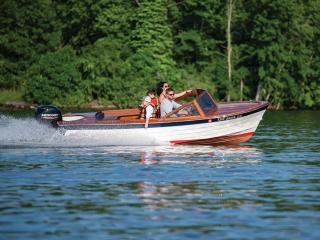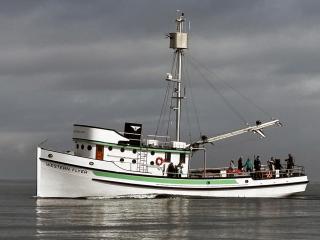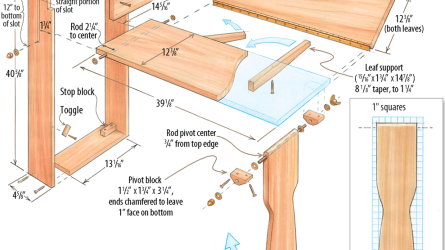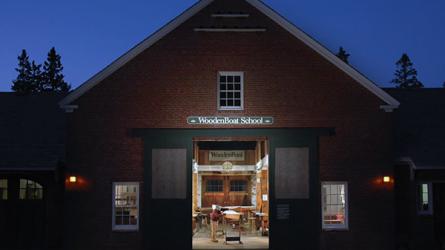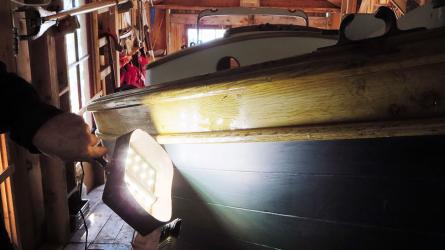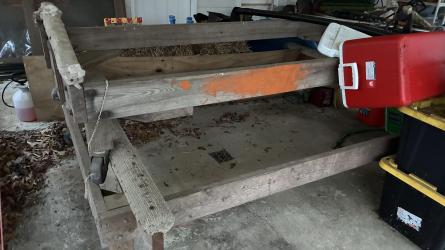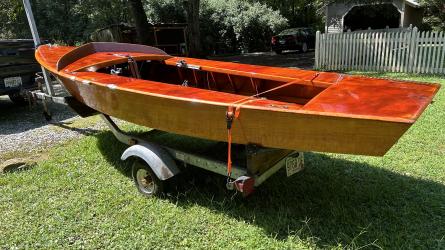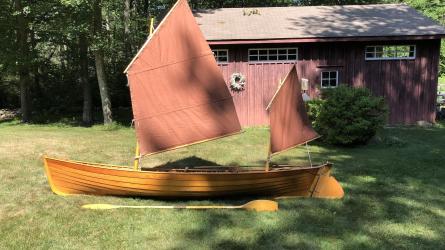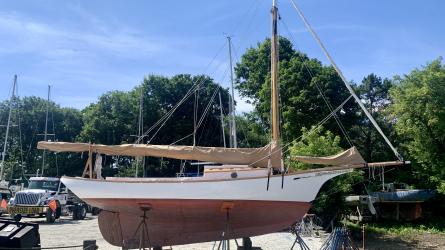September / October 2024
Making Lumber from Logs

A chainsaw mill allows a boatbuilder not only to take advantage of wood that might otherwise be wasted but also to control how the wood is cut.
For as long as wooden boats have existed, those who build and maintain them have grappled with the cost and availability of suitable lumber. Although modern craftsmen have access to a vast selection of wood, price and selection of this vital resource have fluctuated significantly in recent years. Disruptions in the harvesting, processing, and shipment of lumber are often reflected in its cost, which is felt most acutely by the consumer. Furthermore, shipping and unreliable quality control at the sawmill can create issues for a project before it even starts.
Do-it-yourself chainsaw milling offers a potential solution to these issues by enabling the production of lumber directly from logs using minimal equipment. Chainsaw mills are removable attachments that mount on the bar of a typical chainsaw to act as a cutting guide. These devices transform the saw into a miniature sawmill that can be used to make uniform cuts on felled trees or logs in the field. With the right tools and techniques, boatbuilders can produce custom lumber from local trees for a fraction of the cost of purchasing it. By being involved from start to finish, the boatbuilder also retains complete control over the dimensions, grain orientation, and quality of the lumber produced.
Far too often, large oak or pine trees felled during landscaping are chopped into dozens of pieces no more than 2' long. A straight, solid trunk of excellent timber can be transformed into wood chips or firewood in an afternoon. In my home state of Louisiana, I frequently witness live-oak trees being cut up and hauled away after they are downed or damaged by storms. A homeowner will often remove trees that are perceived as a threat to the house, a nuisance to a landscaping scheme, or an obstacle to renovation. Owners of rural wooded property are sometimes open to having single trees harvested from their land for fair payment. Trees cut down through any of these circumstances have grown at a natural pace, so they often produce wood with better properties and fewer defects than plantation-grown trees. Processing this wood into planks, frames, or dimensional lumber for wooden boat projects represents a far better use of a natural resource than mulch or firewood. Furthermore, the cost of chainsaw-milling one’s own lumber is significantly lower than purchasing it. Even if the wood being processed is commercially available, the price per board foot at a mill or lumber-supply store will far exceed what can be achieved with a cheap log and an inexpensive milling attachment.
To read the rest of this article:
Click the button below to log into your Digital Issue Access account.
No digital access? Subscribe or upgrade to a WoodenBoat Digital Subscription and finish reading this article as well as every article we have published for the past 50-years.
ACCESS TO EXPERIENCE
Subscribe Today
1 YEAR SUBSCRIPTION (6 ISSUES)
PLUS ACCESS TO MORE THAN 300 DIGITAL BACK ISSUES
DIGITAL $29.00
PRINT+DIGITAL $42.95
Subscribe
To read articles from previous issues, you can purchase the issue at The WoodenBoat Store link below.
 Purchase this issue from
Purchase this issue from
